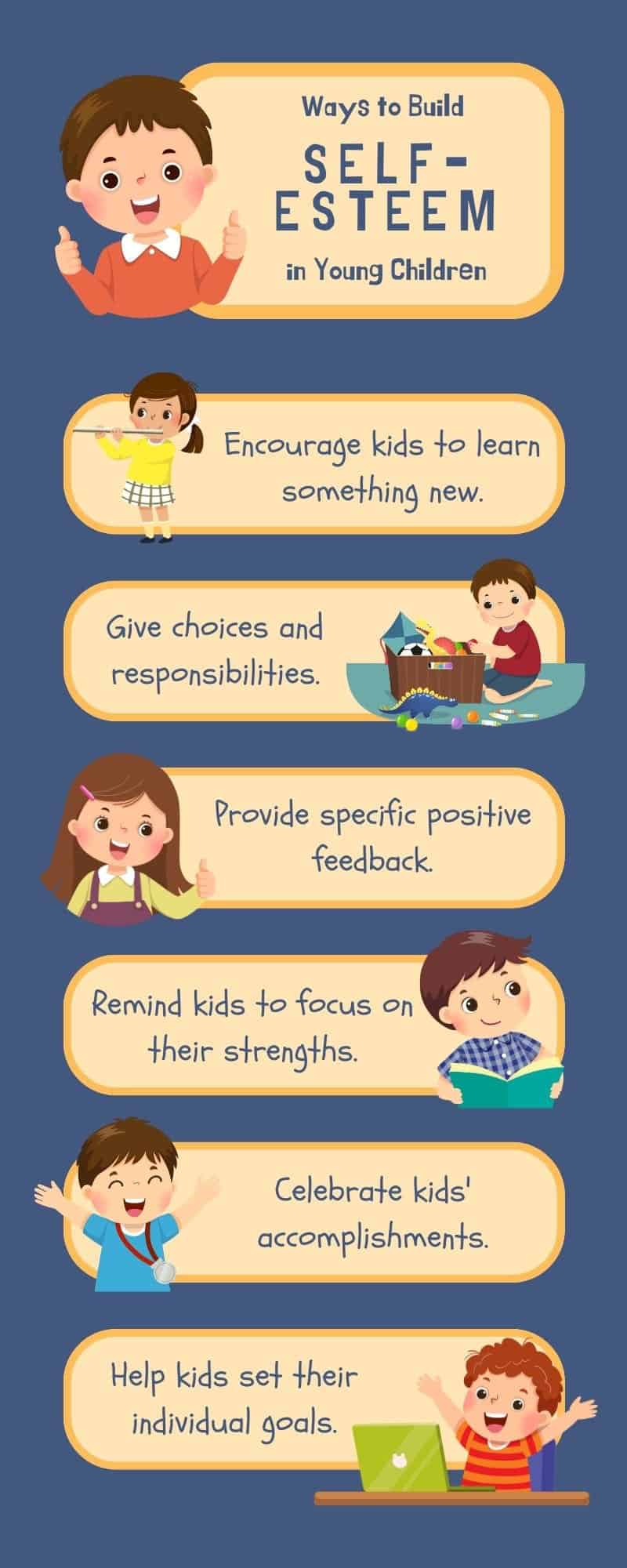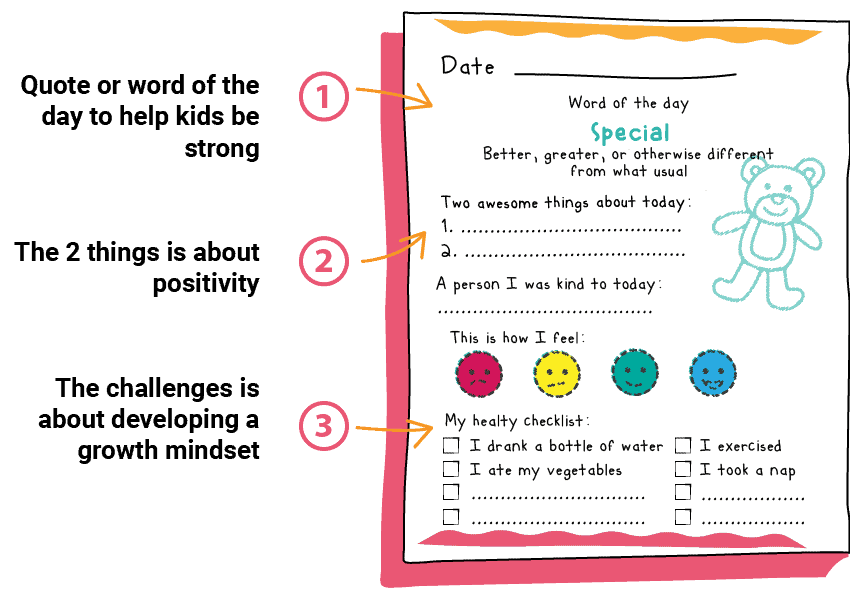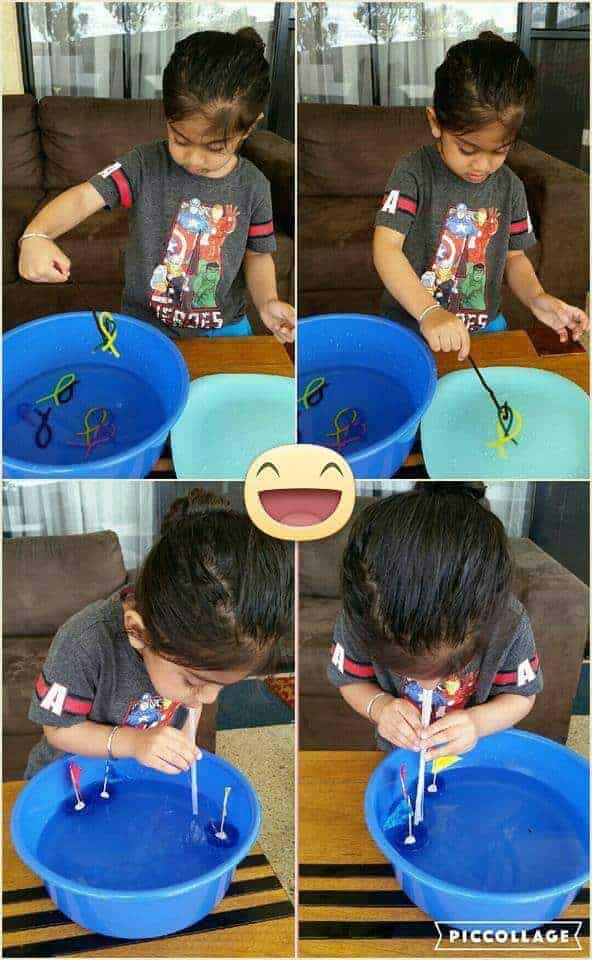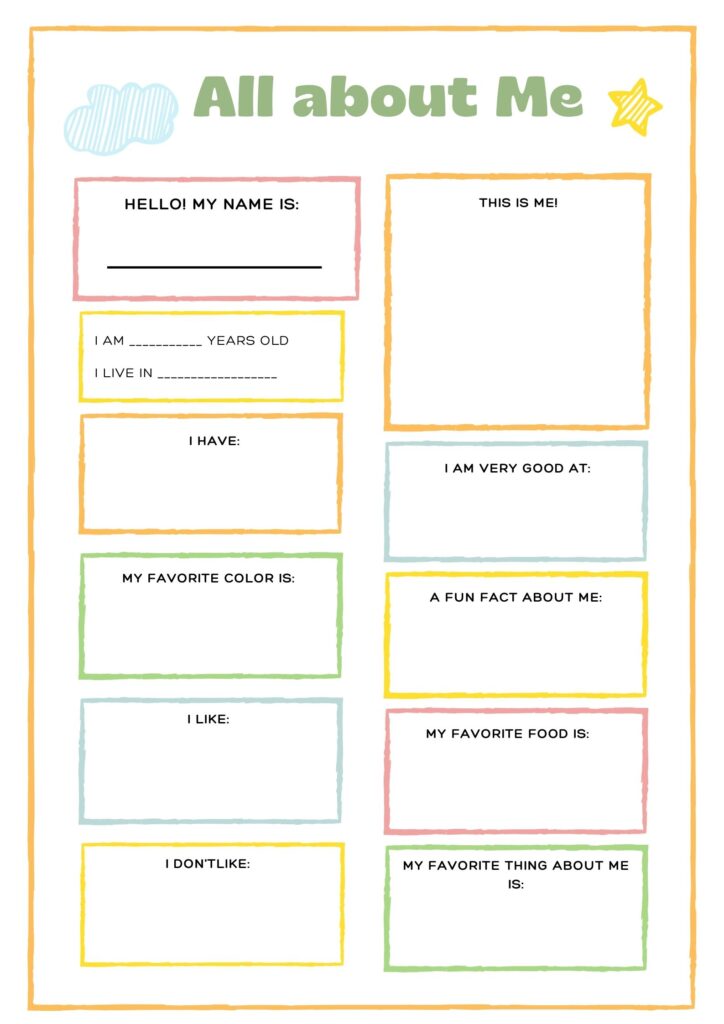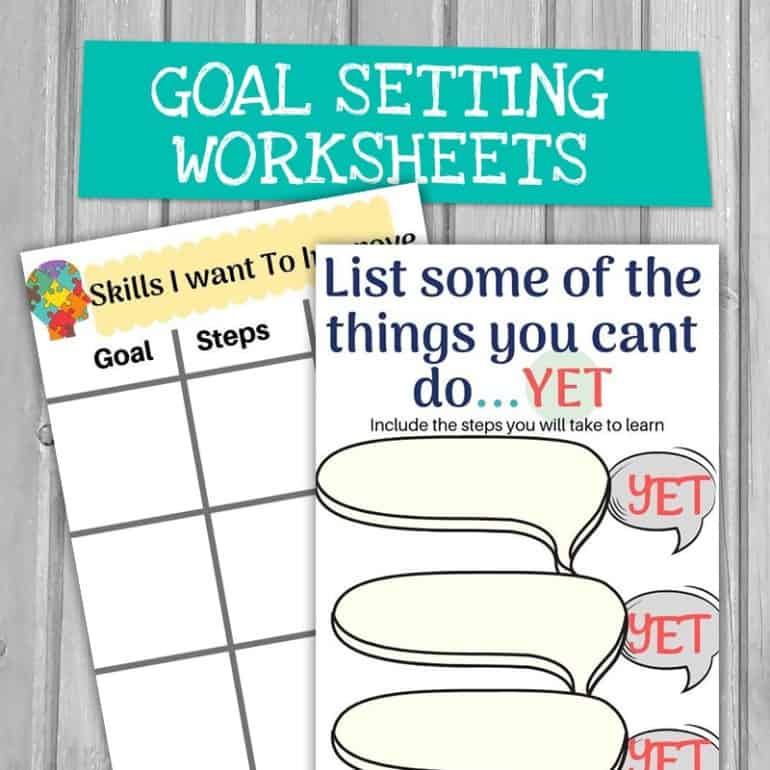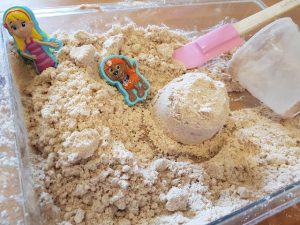Sharing is caring!
As a mom to two girls, I’ve embraced the challenge of boosting their confidence. Early on, my eldest began to question her looks. Recognising this from an early age I have made a conscious effort on building her self-esteem. Seeing her now smile at her reflection and say, “I look good,” fills my heart. . Along the way, I’ve found fun self-esteem activities perfect for kids of all ages to help them shine with confidence.
Before we dive right into it here is a simple illustration on how to build self-esteem in young children.
Self-Esteem Activities for 3-5 Years Old
1. The Positive Affirmations Jar
Instructions: Together with your child, decorate a jar and fill it with slips of paper, each inscribed with positive affirmations like “I am kind,” “I am smart,” and “I am loved.” Each morning, have your child pick one slip to read aloud. Otherwise print out the affirmation jar image above and ask your child to write down in the jar things they like about themselves.
How it helps: This simple activity instills a habit of positive self-talk and reinforces a healthy self-esteem from a young age.
2. The ‘I Can Do It’ Board
Instructions: Create a board or poster where your child can pin pictures or drawings of tasks they can do independently, such as tying shoelaces or drawing a flower.
How it boosts self-esteem: Celebrating these small victories encourages a sense of independence and self-confidence.
3. Mirror Mirror
Instructions: Stand with your child in front of a mirror, making funny faces or expressions. Then, shift to making positive statements about yourselves.
How it builds confidence: This activity teaches children to associate looking in the mirror with positive feelings and self-acceptance.
4. The Compliment Train
Instructions: Sit in a circle with your child and any other family members or friends.
Starting with one person, have them compliment the person to their right, saying something positive about them. This continues around the circle, with each person receiving and giving compliments.
How it enhances self-esteem: This activity fosters a culture of positive feedback and appreciation among young children, reinforcing their sense of self-worth and helping them recognize the good in themselves and others.
It’s a great way to combat negative thoughts and build a strong foundation of high self-esteem through positive social interactions.
5. The ‘I Am Awesome Because…’ Book
Instructions: Work with your child to create a simple, illustrated book titled “I Am Awesome Because…”.
Each page of the book will feature a different reason why your child feels good about themselves, such as “I am a good friend,” “I help at home,” or “I can tie my shoes.”
Encourage them to draw pictures that correspond with the text. Alternatively download the Awesome Adventure Journal and use this with your child.
How it promotes self-esteem: This activity encourages young children to acknowledge and celebrate their own abilities, achievements, and positive characteristics.
Creating a physical book that they can look at any time serves as a powerful tool for reinforcing positive self-esteem and reminding them of the positive things about themselves, especially during times they might feel down or face challenges.
Self-Esteem Activities for 6-9 Years Old
1. Gratitude Journal
Instructions: Encourage your child to keep a daily journal of things they’re grateful for, including positive experiences and qualities they like about themselves. Use the Awesome Adventure Journal and watch how your child will start feeling positive about themselves.
Benefits: Fostering gratitude is linked to higher self-esteem as it shifts focus from what they lack to what they possess.
2. Skill Spotlight
Instructions: Dedicate time each week for your child to teach the family a new skill they’ve learned. It could be a simple magic trick, a dance move, or how to draw something. You can even do some meditation or Yoga together.
Don’t be afraid to explore some fun screen time activities together.
Alternatively, check out our cheap and easy arts and crafts activities that will definitely keep kids entertained while learning a new skill.
Why it’s effective: Teaching others boosts their sense of competence and reinforces their value within the family.
3. Positive Poster
Instructions: Together, create a poster board filled with positive words, quotes, and images that reflect your child’s strengths and aspirations.
Impact: This serves as a visual reminder of their positive attributes and goals, boosting self-esteem and motivation.
Self-Esteem Activities for 10-Year-Olds
1. The Achievement Timeline
Instructions: Create a timeline of your child’s life, highlighting achievements and positive milestones.
Benefits: Reflecting on past successes can boost confidence and provide a sense of progress and accomplishment.
2. The Compliment Circle
Instructions: In a family or group setting, take turns giving each person a compliment, focusing on character strengths and achievements.
How it helps: This reinforces positive social interactions and helps children recognize their own strengths through the eyes of others.
3. Goal Setting Workshop
Instructions: Guide your child in setting personal goals, breaking them down into achievable steps, and celebrating milestones. Use the growth mindset kit to help your kids learn to set goals.
Why it’s valuable: It teaches the importance of setting and working towards goals, fostering a growth mindset and resilience.
Easy Self-Esteem Activities at Home
- Family Affirmation Time: Set aside time each day for family members to share something they appreciate about each other.
- Skill Swap: Family members teach each other something they’re good at, promoting a culture of learning and appreciation for each other’s talents.
3.Vision Board Creation
Instructions: Encourage your child to create a vision board that represents their dreams, strengths, and things they love about themselves.
Provide magazines, stickers, and drawing materials for them to cut out and draw images and words that resonate with their goals and self-image.
Why It Works: Creating a vision board is a fun and creative way for kids to visualize their aspirations and the positive aspects of themselves.
It’s an effective way to foster a healthy sense of self-esteem by focusing on their future self in a positive light.
This activity also opens up discussions about personal goals, dreams, and the steps needed to achieve them, reinforcing a sense of purpose and direction.
4. Self-Compassion Letter
Instructions: Ask your child to write a letter to themselves about a time they felt upset or made a mistake. In the letter, they should treat themselves with kindness and understanding, just as they would with a good friend.
Benefits: Writing a self-compassion letter is a powerful exercise in emotional awareness and self-empathy.
It teaches children to replace negative self-talk with supportive and positive thinking, crucial for developing good self-esteem.
This activity also helps in understanding that making mistakes is a part of learning and growing, which is essential for mental health and building resilience.
5. The Good News Box
Instructions: Together with your child, decorate a small box as the “Good News Box.”
Regularly fill it with notes about good things that happen, achievements, compliments from others, and examples of hard work paying off.
Make a habit of reviewing these notes together at the end of each week.
Why It’s Effective: This simple yet impactful activity helps children focus on positive changes, accomplishments, and the good things in their lives, countering tendencies towards focusing on the negative.
It’s a great way to practice gratitude, recognize their own achievements, and reinforce the concept that noticing and celebrating the positive can lead to a stronger foundation of self-esteem.
Plus, it encourages positive feedback within the family, strengthening good relationships and providing a tangible record of their growth and positive experiences.
Fun Games to Boost Self-Esteem
- Board Games Night: Choose games that involve teamwork and strategy, emphasizing collaboration over competition.
- 2Role-Play Scenarios: Act out different scenarios where your child can practice problem-solving and assertiveness.
Nurturing self-esteem is not a one-size-fits-all journey; it requires patience, understanding, and a bit of creativity.
By incorporating these activities into your family’s routine, you’re not just boosting your child’s self-esteem; you’re laying the foundation for their lifelong wellbeing.
Remember, the goal is to create an environment where positive affirmations, gratitude, and personal achievements are part of everyday life, ensuring your child grows up with a strong sense of self-worth and confidence
Before you go don’t forget to get the Personalised Growth mindset kit for children
There are endless possibilities on how you can incorporate self-esteem activities in your classroom and home.
When kids are struggling, it is important to accept those feelings and help them overcome them using the growth mindset activities. This can be a useful tool for your child to be reminded of how unique and amazing they are.
Was this helpful?
Good job! Please give your positive feedback
How could we improve this post? Please Help us.

